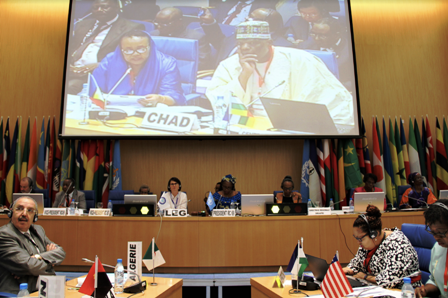A strategic plan to reduce the double burden of malnutrition in the African Region was adopted at the 69th Regional Committee meeting of the World Health Organization (WHO) for the African Region today.
“The plan outlines the urgent and accelerated action that we must take if we are to meet our goal of ending hunger and all forms of malnutrition by 2030,” said WHO Regional Director for Africa, Dr Matshidiso Moeti.
“The WHO Secretariat will be developing and implementing a resource mobilization plan, supporting research collaborations and mounting high-level advocacy for increased investment to reach 90% coverage of the 10 highest-impact nutrition interventions that must be taken to meet the malnutrition challenges in our region,” Dr Moeti said.
The double burden of malnutrition is particularly prevalent in countries undergoing “nutrition transformation” in which undernutrition and overweight or obesity coexist, often because of the increasing consumption of cheap, processed foods that are high in energy, fat and salt content but low in nutrient quality.
This diet, which is common in Africa, fails to address chronic undernutrition and micronutrient deficiencies and contributes to increased obesity and diet-related non-communicable diseases.
The strategic plan aims to strengthen evidence-based policies and national capacity and contains clear targets to be achieved by 2025. Priority interventions include reinforcing legislation and food safety standards, using fiscal measures to incentivize healthy food choices and integrating essential nutrition actions in health service delivery platforms.
The number of undernourished people in sub-Saharan Africa rose from 181 million in 2010 to almost 222 million in 2016. Among children, although the prevalence of stunting decreased from 38.3% in 2000 to 30.3% in 2017, the numbers affected increased from 50.6 million to 58.7 million due to population growth. The rate of wasting in 2017 was 7.1% or 13.8 million children, of whom 4 million were severely wasted.
Overweight rates are also increasing. The number of children younger than 5 years who are overweight increased from 6.6 million in 2000 to 9.7 million in 2017. For children aged 5–19 years, obesity rates doubled between 2006 and 2016, while for adults, overweight and obesity increased from 28.4% in 2000 to 41.7% in 2016.
The Regional Committee is the governing mechanism involving health ministers from all 47 Member States of the WHO African Region.

